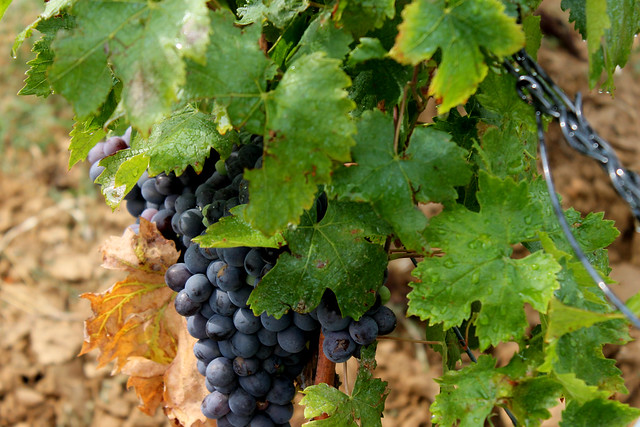
From Lee Ziesche, Grassroots Coordinator:
Every bottle of wine tells a different story. It’s a story that begins in the distinct soil the vines grow from. It’s a story that is shaped by the history and culture of the winemakers. It’s a story that is constantly impacted, pulled towards ripeness or ruin by the climate the grapes grow in. And as in all good stories, it’s really about a relationship. At the heart of each bottle of wine is the terroir: the relationship between the soil, the climate and the winemakers that gave birth to it.
And it’s a story that definitely sounds more beautiful and poetic when those recounting the tale have a French accent.

Domaine Notre Dame de Cousignac
We arrived at the Domaine Notre Dame de Cousignac, a beautiful vineyard and rustic farmhouse bed and breakfast, expecting to chat with a few winemakers about the effects of climate change on their product. We got much more than we expected.
We were greeted by a full round table of organic winemakers and academics. Men and women whose families have been making a living off the earth of the region for generations, and they are worried about the changes they are seeing.
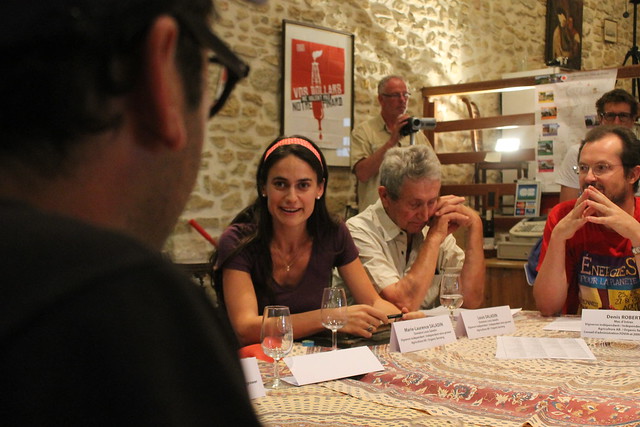
French wine makers in Ardeche
They told us that their harvest dates are moving up every year and the wine contains higher alcohol content. These artisans can and will adapt, but for how long and at what cost? How will it change the terroir? How will it change their story?
Raphael Pommier is the seventh generation on his family’s winery at Domaine Notre Dame de Cousignac. He loves wine and the process of making it so much, his whole face lights up when he shows us samples of soil.
He knows the history of every little bit of dirt on his property and has a vision of what it will be in the future. With every decision he makes, he considers not only how it will impact the current harvest, but also what it will mean for his children and grandchildren, when they take their turn cultivating the land.
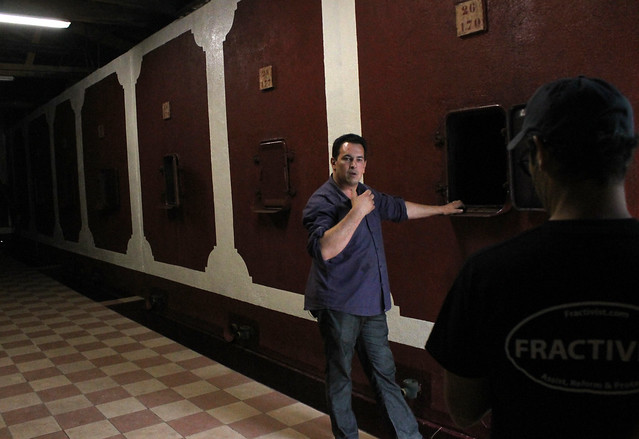
Raphael Pommier
He plants some vines for future generations, knowing all too well that he will never see them bear fruit. He worries about what kind of climate they will be growing in one day. How much will the terroirbe permanently altered by the time his children are harvesting grapes? What story will they tell if pollution and rising temperatures surround them?
It’s something the Saladin sisters also think about. Winemaking has been their family’s trade for an almost impossible-to-fathom 21 generations, first purchasing their vines in 1422. The world has changed so much since their story began, but the Saladin sisters know they are but a chapter.
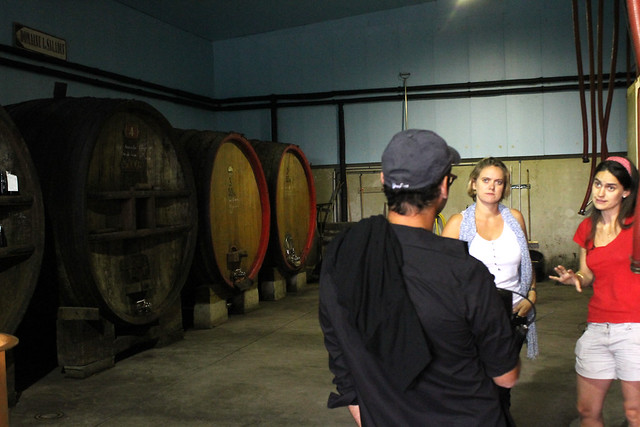
Marie-Laurence and Elisabeth Saladin
Maria-Laurence Saladin told us they are just one stop. There were 20 generations before her and she hopes there will be 20 after.
It’s a mentality that almost escapes me as a 24-year old American. Even as someone who is very close to my family, that sense of tradition and responsibility to pass it forward is almost completely absent from the culture I grew up in.
But as we come face-to-face with the real and growing effects of climate change, I think it’s what we need going forward. We need to stop seeing ourselves as the center of the universe, but rather one stop. What will we leave behind? A toxic legacy of fracking fluids in the ground? A country living in fear of increasing pipelines? Mountains with their tops blown off?
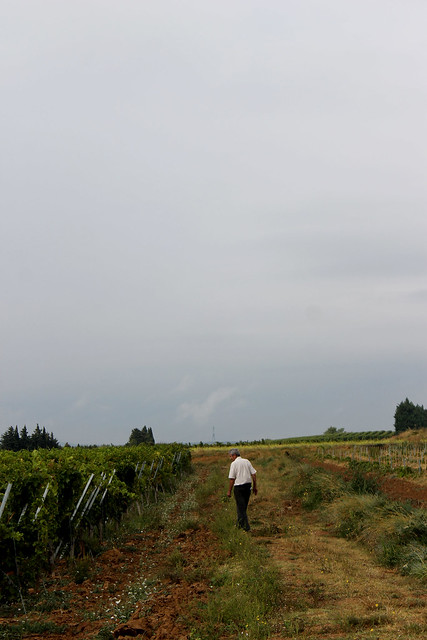
Loï Saladin in his vineyard
While on our grassroots tour of Europe, we spoke to organic winemakers from Ardèche, a region where thousands took to the streets two years ago, leading the charge to ban fracking in France.If there was any place on earth that showed the immediate power of grassroots protest, it was Ardèche. Organizers hit every door, every community meeting, handing out literature and a 20 min version of Gasland (in French) they had bootlegged and with lightning speed 20,000 people were marching in the streets. The movement in Ardèche spread across France and got the first ever nation-wide ban on fracking in the world. All because they love their wine, all because they love their culture.
The winemakers of Ardèche are fighting to leave behind a much richer world than one ravaged by fossil fuel extraction. Like farmers in Wyoming or woodsmen in Pennsylvania, the winemakers of Ardèche are fighting for so much more than the environment; They’re fighting for a a culture that is dependent on the health of the world around them.
Maria-Laurence doesn’t drink wine if she does not know the maker. For her, the act of drinking wine is not just a gustatory pleasure, it’s drinking deep of the story and learning about the long-term relationship between the soil, climate, individual and farm that crafted it. That’s what the winemakers of Ardèche are fighting for: a life where meaning is driven by your connections to the earth and a community.
Josh and I have had many conversations about how that is the true solution to climate change. For many of us, there’s no story in most of what we eat or drink. We’re so connected by electronic devises, yet divorced from the processes that create the energy to run them
Everything we own, use and eat contains its own terroir, but when that relationship includes extreme energy extraction, we’re writing a story that won’t end happily.
We’ll be posting a couple times a week here, sharing posts from folks we met on the road, updates from the subjects of Gasland and Gasland Part II and a lot of pictures and stories of things we experienced on the road.
But we also want to hear from you. Send me an email at screenings@gaslandthemovie.com if you want to us to share your story.
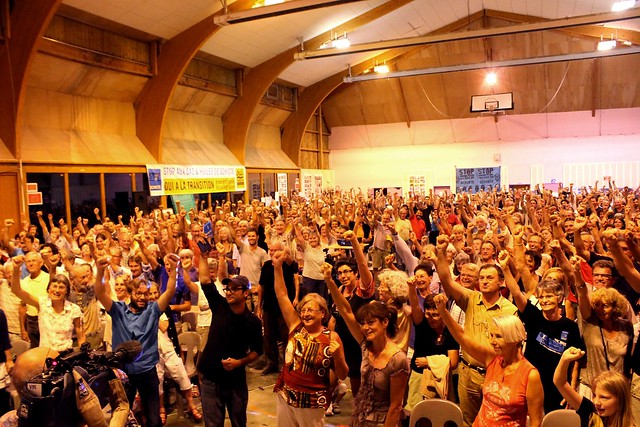



Follow Us: